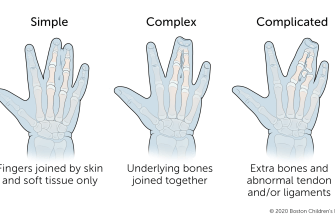Behavioral challenges can be a significant hurdle for individuals of all ages. These challenges can manifest in various ways, such as aggression, defiance, impulsivity, and difficulty following rules. Overcoming behavioral challenges requires a comprehensive approach that involves understanding the underlying causes and implementing effective strategies for managing and modifying behavior. In this article, we will explore the possible causes of behavioral challenges and provide remedies to help individuals overcome them.
Understanding Behavioral Challenges
Behavioral challenges, also known as behavioral difficulties or behavior problems, refer to patterns of behavior that interfere with an individual’s daily functioning and relationships. These challenges can arise due to a variety of factors, including:
- Environmental factors: Chaotic or unstable environments, inconsistent parenting, or exposure to violence can contribute to the development of behavioral challenges.
- Genetic factors: Some individuals may have a genetic predisposition to certain behavioral challenges, such as attention deficit hyperactivity disorder (ADHD) or oppositional defiant disorder (ODD).
- Emotional or psychological factors: Trauma, anxiety, depression, or other mental health conditions can impact behavior and contribute to behavioral challenges.
- Learning or developmental factors: Learning disabilities, intellectual disabilities, or delays in social-emotional development can affect behavior.
Managing Behavioral Challenges
Managing behavioral challenges requires a multi-faceted approach that addresses the underlying causes and provides appropriate support and intervention. Here are some effective strategies for managing behavioral challenges:
Behavior Support and Intervention
Behavior support and intervention involve identifying the specific behaviors that need to be addressed and implementing strategies to promote positive behavior. This may include:
- Setting clear expectations and rules: Clearly defining expectations and rules helps individuals understand what is expected of them and provides a framework for appropriate behavior.
- Positive reinforcement: Rewarding desired behaviors with praise, tokens, or privileges can motivate individuals to continue exhibiting positive behavior.
- Behavior contracts: Creating written agreements that outline specific behaviors and consequences can help individuals understand the expectations and consequences of their actions.
- Functional behavior assessment: Conducting a functional behavior assessment helps identify the underlying causes of challenging behavior and develop targeted interventions.
Behavior Modification and Therapy
Behavior modification and therapy involve teaching individuals new skills and strategies to replace challenging behaviors. This may include:
- Social skills training: Teaching individuals appropriate social skills, such as communication, problem-solving, and conflict resolution, can improve their ability to interact positively with others.
- Cognitive-behavioral therapy (CBT): CBT helps individuals identify and challenge negative thoughts and beliefs that contribute to challenging behavior, promoting more positive and adaptive thinking patterns.
- Applied behavior analysis (ABA): ABA uses systematic techniques to teach new skills and reduce challenging behaviors by breaking them down into smaller, manageable steps.
Overcoming Behavioral Challenges
Overcoming behavioral challenges requires a collaborative effort involving individuals, families, educators, and professionals. Here are some tips for overcoming behavioral challenges:
- Consistency: Consistency in expectations, consequences, and strategies across different environments helps individuals understand and internalize appropriate behavior.
- Positive role modeling: Modeling positive behavior and coping strategies can inspire individuals to adopt similar behaviors.
- Individualized approach: Recognizing that each individual is unique and tailoring interventions to their specific needs and strengths can enhance the effectiveness of behavior management strategies.
- Supportive environment: Creating a supportive and nurturing environment that promotes positive behavior and provides appropriate resources and accommodations can facilitate behavior improvement.
- Collaboration and communication: Regular communication and collaboration between individuals, families, educators, and professionals ensure a consistent and coordinated approach to behavior management.
It is important to note that while behavioral challenges can be effectively managed and modified, complete “cure” may not always be possible. However, with the right support and interventions, individuals can learn to better understand and regulate their behavior, leading to improved functioning and quality of life.
Conclusion
Behavioral challenges can significantly impact an individual’s life, relationships, and overall well-being. Understanding the possible causes and implementing effective strategies for managing and modifying behavior is crucial for overcoming these challenges. By providing behavior support, intervention, modification, and therapy, individuals can develop new skills, improve their behavior patterns, and lead more fulfilling lives. With a collaborative and individualized approach, behavioral challenges can be successfully navigated, leading to positive behavior changes and improved outcomes.








